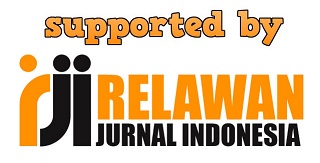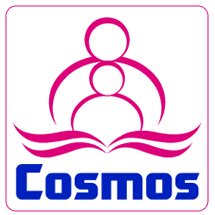Improving Interpersonal Speaking Learning Outcomes and Students’ Confidence as Well as Exploring Students’ Responses through Project-Based Learning
DOI:
https://doi.org/10.61672/eji.v9i1.2879Keywords:
Interpersonal, Speaking, Project-Based LearningAbstract
This project-based Classroom Action Research aims to improve students' speaking skills in the Interpersonal Speaking course, which are still low, and to enhance students' self-confidence. This research uses the Kemmis and McTaggart method and consists of 2 cycles. Planning, implementation, observation, and reflection are components in each cycle. This classroom action research was conducted two meetings in each cycle. The instruments used consisted of pre-test and post-test, questionnaires and observation sheets. The results of this study were analysed using simple statistical methods with the following outcomes: the pre-test score was 62 and the post-test score was 68 in the first cycle, while the pre-test score in the second cycle was 64 and the post-test score was 78. The students' confidence level also increased by 75% during the second cycle. This indicates an improvement in speaking skills, an increase in students' confidence, and a positive response to the material. After the method was used, the speaking learning outcomes in the Interpersonal Speaking course improved. Recommendations for this research include strengthening the implementation of PBL through relevant project designs, approaches to boost confidence, utilization of technology, evaluations based on student feedback, professional development for lecturers, and integration into the curriculum. By implementing these recommendations, it is expected that students' learning outcomes and their confidence in interpersonal speaking will improve, and their responses to the learning process will become increasingly positive.
References
Aztry, A. (2020). Model Student Facilitator and Explaining Dalam Kemampuan Menulis Argumentatif. Bahterasia : Jurnal Ilmiah Pendidikan Bahasa Dan Sastra Indonesia, 1(1), 7–14. https://doi.org/10.30596/bahterasia.v1i1.3740
Bell, S. (2010). for the Future Project-Based Learning for the 21st Century : Skills for. 8655. https://doi.org/10.1080/00098650903505415
Buteikienė, A. (2008). No 主観的健康感を中心とした在宅高齢者における 健康関連指標に関する共分散構造分析Title. 管理现代化, 61–64.
Frazier, S., & Brown, H. D. (2001). Teaching by Principles: An Interactive Approach to Language Pedagogy. In TESOL Quarterly (Vol. 35, Issue 2, p. 341). https://doi.org/10.2307/3587655
Japar, M., & Awalya, A. (2020). The Effectiveness of Group Counseling with Self-Talk technique to Improve Students ’ Self -Confidence. 9(3), 132–137.
Maulana, C., & Royal, S. (2024). Using Project-Based Learning To Improve Speaking Skills. Journal of Science and Social Research, 4307(3), 833–842. http://jurnal.goretanpena.com/index.php/JSSR
Prihantoro, A., & Hidayat, F. (2019). Ulumuddin: Jurnal Ilmu-ilmu Keislaman MELAKUKAN PENELITIAN TINDAKAN KELAS. Ulumuddin: Jurnal Ilmu-Ilmu Keislaman, 9(1), 49–60. https://jurnal.ucy.ac.id/index.php/agama_islam/index
Rostiana, D., Wibowo, M. E., & Purwanto, E. (2018). Jurnal Bimbingan Konseling The Implementation of Self Instruction and Thought Stopping Group Counseling Techniques to Improve Victim Bullying Self Esteem. 7(1), 36–40.
Skobelev, P., & Borovik, S. (2021). On the way from Industry 4 . 0 to Industry 5 . 0 : from digital manufacturing to digital society. November, 2–7.
Suharsimi-Arikunto. (n.d.). Buku-Suharsimi-Arikunto_Compress.Pdf.
Thomas, J. W., & Ph, D. (2000). A REVIEW OF RESEARCH ON PROJECT-BASED LEARNING.
Widiyani, S. P. (2021). Optimalisasi Kemampuan Berbicara Bahasa Inggris dan Percaya Diri melalui Jigsaw pada Siswa Kelas X SMK. Jurnal Pendidikan: Teori, Penelitian, Dan Pengembangan, 6(3), 339. https://doi.org/10.17977/jptpp.v6i3.14607
Downloads
Published
Issue
Section
License
Copyright (c) 2025 Meilina Haris Mayekti, Dinar Faiza, Ade Christanty Yudha Bestari

This work is licensed under a Creative Commons Attribution 4.0 International License.




















